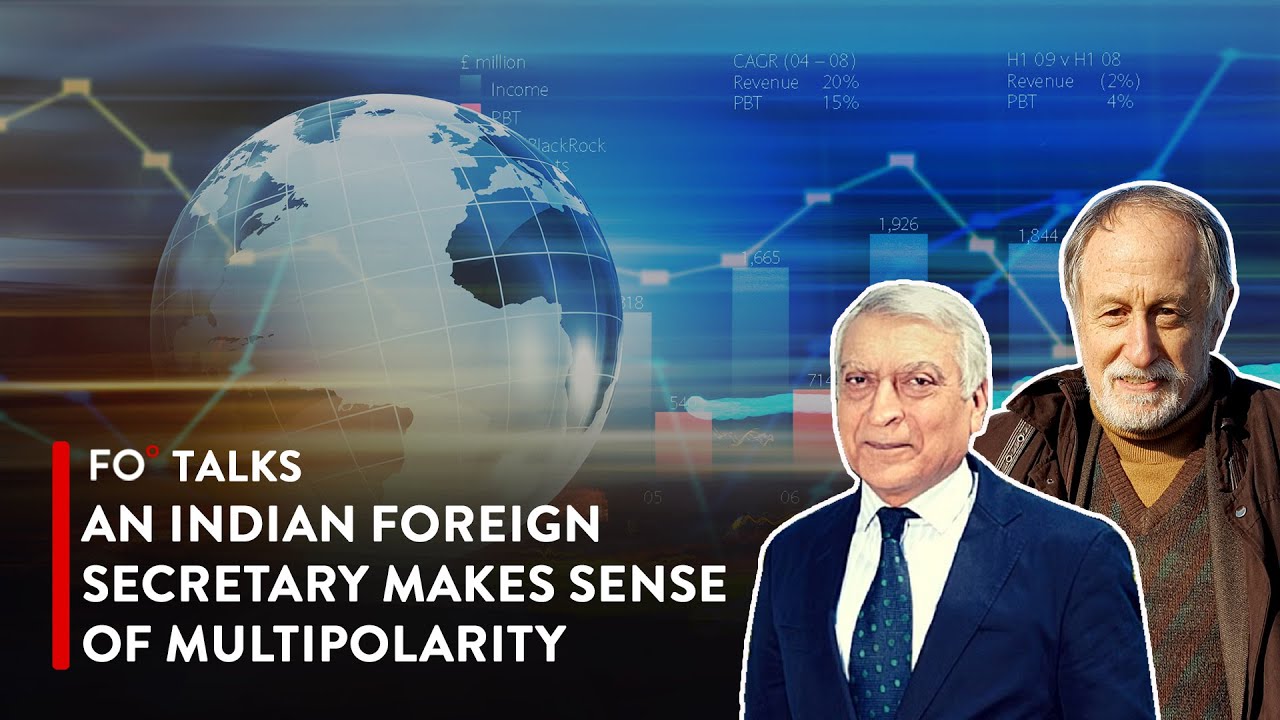Interview with Professor Salvatore Babones
Professor Salvatore Babones is a man on a mission. He wants to restore India’s place in the global democratic rankings.
“I’m not Indian, I’m not Hindu, I’m not getting any money for this,” says the American academic, currently based in Australia. “It’s simply a matter of justice.”
In this interview with Fair Observer’s Claire Price, Babones outlines how and why he disagrees with the global rankings drawn up by Freedom House, the V-Dem Institute and the Economist Intelligence Unit, all of which have downgraded India under Modi’s premiership.
Claire Price: Last year, you became quite a hero in India after you criticized the democracy indices by Freedom House, the V-Dem Institute and the Economist Intelligence Unit. We’ll go through all of those in detail, but first, can you give us a general overview of your arguments?
Salvatore Babones: There are three major democracy indices; they range from the most objective, the Rise of Democracy Institute rankings and Freedom House, to the most subjective, the Economist rankings. Ironically, it’s the most subjective rankings that rate India the best, which we should get into. The most objective, the V-Dem rankings, rate it the worst, but these rankings are very much driven by politics and by people’s own political views.
Claire Price: Sweden’s Freedom Institute was bad for India last year, but frankly it’s even worse this year. India has plummeted in the Electoral Democracy Index from 93rd to 108th in the world. So that’s below countries like Tanzania, Bolivia, Mexico, Singapore and Nigeria. What’s your issue with their methodology?
Salvatore Babones: There are very serious problems with V-Dem’s methodology. V-Dem is composed of five sub-indices of democracy; two are supposedly objective and three are subjective. The objective indicators are whether or not you have elections and whether or not you have universal suffrage. Virtually every country in the world gets a perfect score for those, including Vietnam, for example, which has a single-party communist party state. They get a perfect score because they’re purely looking at the constitution. So if the constitution says that officials are elected and if the constitution says that everyone can vote, then right away you get a perfect score. That means countries that are not democracies at all are starting with the same perfect score.
With a country like India, which is a bona fide democracy, the differentiation in V-Dem comes from its more subjective indicators. We’re asking experts to evaluate things that don’t necessarily have much to do with democracy. So for example, on free and fair elections, Hong Kong is rated to have freer and fairer elections than India. Why? Because when you look at the actual questions on V-Dem, the questions are things like, is there any violence at the polls? Well, yes, in India, every year there’s violence. At the polls in Hong Kong, no, it’s an orderly state. Are there any complaints to the electoral commission? In Hong Kong, no. Why would you complain? It’s a communist-party-run area. We have these same problems in Vietnam; Vietnam is really on a par with India for free and fair elections despite the fact that there’s only one party in Vietnam. What matters is that the formal process in Vietnam goes off without a hitch.
Now what we should be asking is, can you realistically unseat the government? Can you oppose the government? Could someone else win an election? Those are really what democracy is about. Those questions aren’t even in V-Dem. So, in effect, India is being downgraded for questions about process when autocratic regimes are scoring better.
Claire Price: There are also some conclusions in their reports. For example, that India is one of the top ten autocratizing countries in the world. Isn’t it true that we are seeing this centralization of power under Modi to a greater extent now than we ever have in the past?
Salvatore Babones: No, look, this is an artifact of what we call the “charisma of statistics.” V-Dem has set a series of score points on its indices. If you’re below this score, you’re an autocracy. They’re not doing a deep evaluation of India’s governance standards, they’re simply asking if your score is below, say, 0.6. If you’re below this point you become an autocracy. So they’re simply saying that India’s score on V-Dem has declined. Now they’re interpreting that in words without doing any actual analysis of governance procedures in India.
Claire Price: Some members of the Rashtriya Swayamsevak Sangh, which is aligned to the Bharatiya Janata Party, have said that the Indian Administrative Service has too much power now. So isn’t that criticism coming from those who are in theory aligned with the government?
Salvatore Babones: There’s a legitimate debate all around the world of presidential versus cabinet systems, of consensus government versus winner-take-all systems. We see that debate not just in India, but in lots of other countries as well. But that debate is not in the V-Dem rankings. There are no questions in V-Dem, as far as I’m aware, that ask, “Is government consensual?” or “Is government centralized?” because we accept that centralized and consensual systems are both forms of democracy. So yes, there may be these complaints in India.
On the other hand, other people may complain that the administration in India is inefficient and too decentralized. I mean, there are various points of view on whether administration should be centralized or decentralized, but that’s not something unique to India, and I stress that it is not the reason for the declining ranking on V-Dem. The declining ranking on V-Dem is driven entirely by declining scores on specific questions asked of Indian political scientists. And those scores, I think, in some cases are probably biased. That is, the people they’re asking have a bias against the current government. They see the Electoral Commission as being less independent because Modi won. And to some extent, those questions are simply methodologically poorly constructed. Is a free and fair election really one in which the electoral roll is complete and there’s no violence in the polls? Or is a free and fair election one in which you can oppose the government? V-Dem says the former, I think the latter is a much more intuitive understanding.
Price: There are complaints by those in India that there’s been a centralization of power, not just at the prime ministerial level but also at the state level, with Mamata Banerjee in West Bengal and M. K. Stalin in Tamil Nadu. Isn’t that a trend that people can see, not just something that’s been twisted in the statistics?
Babones: Well, I think there is a trend in India towards more centralized government, but I don’t see that that’s in any way anti-democratic; democracy theory really says nothing on this and I don’t see that it’s necessarily even bad. India is a poor, developing country with a lack of administrative talent, and when things get brought into the Prime Minister’s office, they get done. When things are left to the broader bureaucracy, they often don’t get done, so it’s a recipe for making sure that promises made by politicians actually get enacted. Now I know many people will feel that their ideal of democracy is a decentralized democracy where everything is local—until their local authority makes a decision that they think is reprehensible or against human rights, and then they want things to come from above.
Price: One word we haven’t mentioned so far is corruption. Transparency International actually ranks India 85th in the world for corruption. It says that the country schools remain stagnant, so it hasn’t worsened, but some of the mechanisms that could help rein in corruption are weakening. Do you dispute that finding?
Babones: India is relatively clean from the standpoint of a developing country. It’s number 85th in the world despite being much poorer than 85th in the world, but it is relatively corrupt compared to Western Europe or North American countries. That’s just a fact. Corruption is not worsening by any account, and by most accounts—this is anecdotal, I can’t vouch for these in any kind of data-driven way—the Modi government has made anti-corruption a serious effort. The one thing we do know where corruption has been dramatically reduced is in the most important area—not licensing for 5G telecom or defense procurement—but in the most important thing of all, service delivery to the poor.
We know that moving to direct benefit transfers, which has been a key policy achievement of the Modi government, has cut out all the middlemen who were previously taking part of the cash that was supposed to be going to poor people. Poor people now receive their full benefits instead of having to face corruption at every stage. So that’s a big win against corruption.
What is the true level of corruption in India? I can’t tell you. Surveys can’t tell you. Transparency International almost entirely surveys large businesses. So they’re big business perceptions of corruption. We don’t even have any proper indices of ordinary people’s perceptions of corruption. We don’t know how corrupt India is. If I had to guess, I’d say they’re doing a good job for a country with $2,200 GDP per capita.
Price: So, lack of data might explain, for example, why The Economist relies so much on experts for its findings. They, in 2022, described India as a flawed democracy and downgraded it two places to the 53rd position. What’s your view on their rankings?
Babones: Flawed democracy, quote unquote. “Partly free,” to use the Freedom House terminology. I remind people, that’s not a value judgment. That’s a score judgment. If you fall below a certain score on your index, they have a range that is “democracy,” a range that is “flawed, democracy,” a range that is “non-democracy.” Same thing with Freedom House—a range that is “free,” a range that is “partly free,” a range that is “unfree.” That’s not a judgment that it’s suddenly become flawed, where it wasn’t flawed before. All democracies are flawed democracies. The Economist has now downgraded India for the last few years. That’s the opinion of their editorial team that India’s democracy is no longer as good as it was, but I strongly suspect that that opinion is shaped by the press coverage they see coming out of India, by the NGO reports they see coming out of India; it’s not driven by a deep expertise on India.
I remind everyone, The Economist is not ranking India. The Economist is ranking 170 countries. Freedom House, the same thing. V-Dem, the same thing. These are not India rankings. These are broad global rankings. The Economist, of all three of these, has the least country expertise embedded in its rankings. Ironically, it produces the best ranking for India. V-Dem, which relies almost solely, 85%, they say, on in-country experts, rates India the worst. So, use a grain of salt, take it whatever way you want, but it’s certainly not very meaningful to say that India has gone from being “free” to “partly free” or from being a “full democracy” to “flawed democracy.” All that represents is a declining score on their index.
Price: Now let’s look at the Freedom House report because that focuses particularly on rights. Freedom House downgraded India from “free” to “partially free” in 2022, and it maintains that view this year. It said in its report that Prime Minister Narendra Modi and the Hindu nationalist BJP have presided over discriminatory policies and a rise in persecution affecting the Muslim population. Are they wrong?
Babones: Oh, I think they are wrong. I think we have some good data that they’re wrong. They are picking up on a number of policies that have been portrayed by NGOs as being anti-Muslim or being transgressions of rights. In fact, if you look at them carefully, it’s an NGO interpretation that is being spun from those policies.
The most clear example is the Citizenship Amendment Act, which is cited by Freedom House in its report. The CAA is an act that gives a pathway to citizenship for people who are members of persecuted religious minorities fleeing Afghanistan, Pakistan and Bangladesh. These are officially Sharia-law, officially Muslim countries that have historically persecuted people of other religions. Now what the CAA says is that if you’re a Muslim refugee from Afghanistan, you are not automatically granted refugee status. You have to apply. If you’re Sikh, if you’re Hindu, because of your religion, you are considered a legitimate refugee. If you’re Muslim, you have to show persecution.
Now, I think that’s an unnecessarily strict construction of refugee status. I think there could have been more leeway in it. For example, Ahmadi Muslims are persecuted in Pakistan, even though Pakistan is an officially Muslim country. Allowing anyone who’s persecuted on behalf of religion would have probably been a more generous and better-drafted way to write the law. But instead of saying anyone’s personal on the basis of religion, the law actually lists a series of religions. That’s poor drafting, it’s not a perfect law, but it’s a very liberal law.
Price: I think that’s one aspect, but if you look at what Human Rights Watch for example is saying about India, they talk about summary punishments. They talk about shops and homes being demolished, excessive force, public floggings. So these are actual things happening to Muslims in India. We’re not just talking about whether they accept Muslims from neighboring countries.
Babones: These things have occurred as incidents in India, and they have been investigated and they’re subject to litigation in India. That’s the key point. We all respect New Zealand, we all think it’s a wonderful democracy and it’s rated in the top five of all the major democracy rankings. Well, if I told you that the largest mass killing of Muslims in the last five years occurred in New Zealand. “Oh, are you serious? More Muslims have been killed in terrorist attacks in New Zealand than in India in the last five years?” Oh, that’s right, the 2019 Christchurch massacre. We forget about it because we think it’s a good country. Now, if 200 Muslims have been killed in a terrorist attack in India for being Muslim, we would never hear the end of it because we have a preconception that India is anti-Muslim.
With New Zealand, we trust that the perpetrators are going to be tracked down, that these are going to be redressed and there is going to be, and there was, a national outpouring of sympathy for the community that was attacked. And really, that’s what we should be looking for in India. We can ask if any police person in India has ever transgressed the rights of Muslims. And the answer is yes. As the answer is yes, in England, in the United States, in New Zealand, in every country in the world. The question is what happens to the person who does it? So for example, you mentioned the case of the whipping of the Muslim man who was tied to a post and whipped by police; those police officers were promptly arrested. Now I don’t know the exact progress of the case, but they were arrested. They were dismissed; they’re facing legal action.
And that’s what we really need to look to. I mean, India is a country that has a GDP per capita on par with sub-Saharan Africa. We shouldn’t be expecting that India have a level of education and civility that is similar to a well-settled country with 30 times its GDP per capita. So the question for India is not, “Do things happen that are wrong?” They happen in New Zealand, they happen in the UK. These things happen everywhere. The question is, “In a robust, well-institutionalized democracy, does the machinery of government respond appropriately?” And I think in India the answer is largely, and I stress “largely,” yes.
Price: Tell me why you think these rankings matter.
Babones: They matter for many reasons. First, they matter because they matter for international affairs. Narendra Modi just visited the United States. There is a willingness in the United States to work with India because of the perception that it is a growing economy and an important country, but the American establishment is, in effect, holding its nose when it works with India. All of the statements, they’re all along the lines of, “Well, we know India has problems, but we want to work with them anyway,” instead of saying, “Actually, these accounts of problems in India are wildly exaggerated.” We saw Barack Obama recently in a very controversial interview in which he said that India had to address these problems, or it might soon face a second partition. Now this affects how the United States works with India, whether it works with India as a true partner or simply as a customer, someone who might buy defense equipment. It affects how much India pays for its international bonds, right?
Price: So there are real-world effects?
Babones: Bonds are all benchmarked to the sovereign bond rate, and the sovereign bond rate for India is partly benchmarked to government standards. Those government standards in large part come from the V-Dem survey, which then enter into the World Bank and United States Agency for International Development governance standards. So there are indirect but real effects. There’s just also the matter of simple justice. I mean, I’m an academic. I’m not a spokesperson for India.
Price: You say you’re not a spokesperson for India, but you make no secret of your support for India on Twitter. You’re wearing a “Make India Great Again” hat and you’re raising money for an Indian think tank.
Babones: Look, any think tank has to raise money and that’s just a fact of life. Any reporting organization has to earn money. We have to earn money to do things. Now that money is not going to me, I must stress everything I’ve done for the Indian Century Roundtable has been pro bono. My “Make India Great Again” hat is a joke. I’m very much a humorist on Twitter, and in fact I write a humor column for an Australian journal. But that is not in my academic writing.
Price: Are you worried about your perceived objectivity? You met Modi, for example, last month and you exchanged some comments on Twitter, which showed you were very proud to have met him.
Babones: Well, of course I am. I think that’s a perfectly normal human being to do. Look, I am not an arbiter. I’m not a judge. I’m not a journalist. I’m a person and an academic who’s writing what he believes, and I also have a personal life. Now, if I had a responsibility to defend India, I would probably be much more guarded about things I say personally on Twitter. I am not the guardian of India. I’m not the defender of India. I’m an academic who has a viewpoint. You can take my viewpoint or leave it. But the point is what I’m bringing to the table is factual data about India.
We haven’t got into any of those facts today in this interview. I can give you lots of survey data about India. I can give you lots of factual data about India. Now, whether or not people like me or like what hat I wear, the factual data are the factual data. And I get people, almost always, coming back with ad hominem attacks. If I write something that is exculpatory about Narendra Modi’s India, someone will say “Oh, he’s a Trump supporter.” Well, first of all, whether or not I am a Trump supporter (and I’ve never taken any public position on that) is irrelevant about whether the facts about India are true or not. I mean, the data on journalist deaths are the same data whatever you think of me personally. The data we have on attitudes of Muslims in India, that is Muslims' self-reported experiences of discrimination in India are the same. I’d like to talk about the data, not so much about myself.
Price: Tell us more about what your think tank is aiming to achieve.
Babones: Well, the Indian Century Roundtable is something I’ve tried to get started up in Australia. I should stress it’s an Australian think tank and our goal is to present a factual narrative about India. Our launch report was a report about the V-Dem rankings, and again, it’s not a report that just complains that the V-Dem rankings are unfair to India. It’s a technical analysis of V-Dem. My own background is as a social statistician. I teach our statistics curriculum at the University of Sydney, and my major academic work is about methods for quantitative macro-comparative research, which is a book about statistics used for international comparison. So this is exactly my own area of academic expertise.
We’re also looking to commission papers on other controversial issues in India, just to try to get a factual account. When I commission those papers, we go to experts that have knowledge on the subject. We’re not trying to give a policy recommendation for India. Instead, we’re simply trying to get a factual account of India.
Our next paper will be on the national identification number system. Right now if you go for information in the West, all you can get is either glorifying articles from the business press about how wonderful it is that everyone has a bank account or condemnatory articles from the NGO press saying that this is a system for cataloging people to prime them for repression. Well, we put together a factual account. “How does the system actually work?”
We’re commissioning a paper on the collegiate system for appointing judges. India has a very distinctive system. The closest parallel is Israel, pre-Netanyahu reforms, for appointing judges. Judges essentially appoint themselves in India’s judiciary. Well, does that ensure judicial independence, or is that a recipe for nepotism? We’ve commissioned a report from a senior barrister, an Australian barrister, to just take an objective look at the system.
I have no position on these things. I’m not Indian. I’m not Hindu. I’m not getting any money from this. I’m doing this because I’m looking at the data and saying the data are completely at odds with the narrative. Then when you get deeper into the narrative, we see highly political people who are pushing the narrative. Then reporters, and forgive me, it’s not nice to criticize the fourth estate, but reporters instead of going to the data, just repeat, via quote, “This NGO person said this, this NGO person said that,” without asking \hard questions of them. Wait a minute, why are you saying that? Is that true?
The simple thing that I keep going back to, is the Committee to Protect Journalists, which tells everyone that journalists are in danger in India because more journalists are killed in India over time than in any other country outside China. You think, “Oh, that’s terrible.” Well, no reporter, as far as I could tell, has ever asked the Committee to Protect Journalists if they have adjusted for population size. It doesn’t take a social statistician, who writes books on statistics, to just ask that simple question. Yes, more people have black hair in India than in India than any country outside of China. Tell me what the stats are. I’d like to see the fourth estate not only holding me to account—I’m happy with that—but holding NGOs to account, holding politicians to account, going to the data. That’s what the Indian Century Roundtable is all about. It’s all about going to the data.
Price: Thank you so much, Professor. I think we’ll have to leave it there.
Fair Observer is a platform for citizen journalism with over two and a half thousand contributors from over 90 different countries. And we would love you to join the conversation. So if today’s discussion has prompted any thoughts, do get in touch. You can follow us on social media, you can write for us and you can sign up for our weekly newsletter. Thanks very much.
Thank you.
Babones: Thank you.
The views expressed in this article/video are the author’s own and do not necessarily reflect Fair Observer’s editorial policy.




























